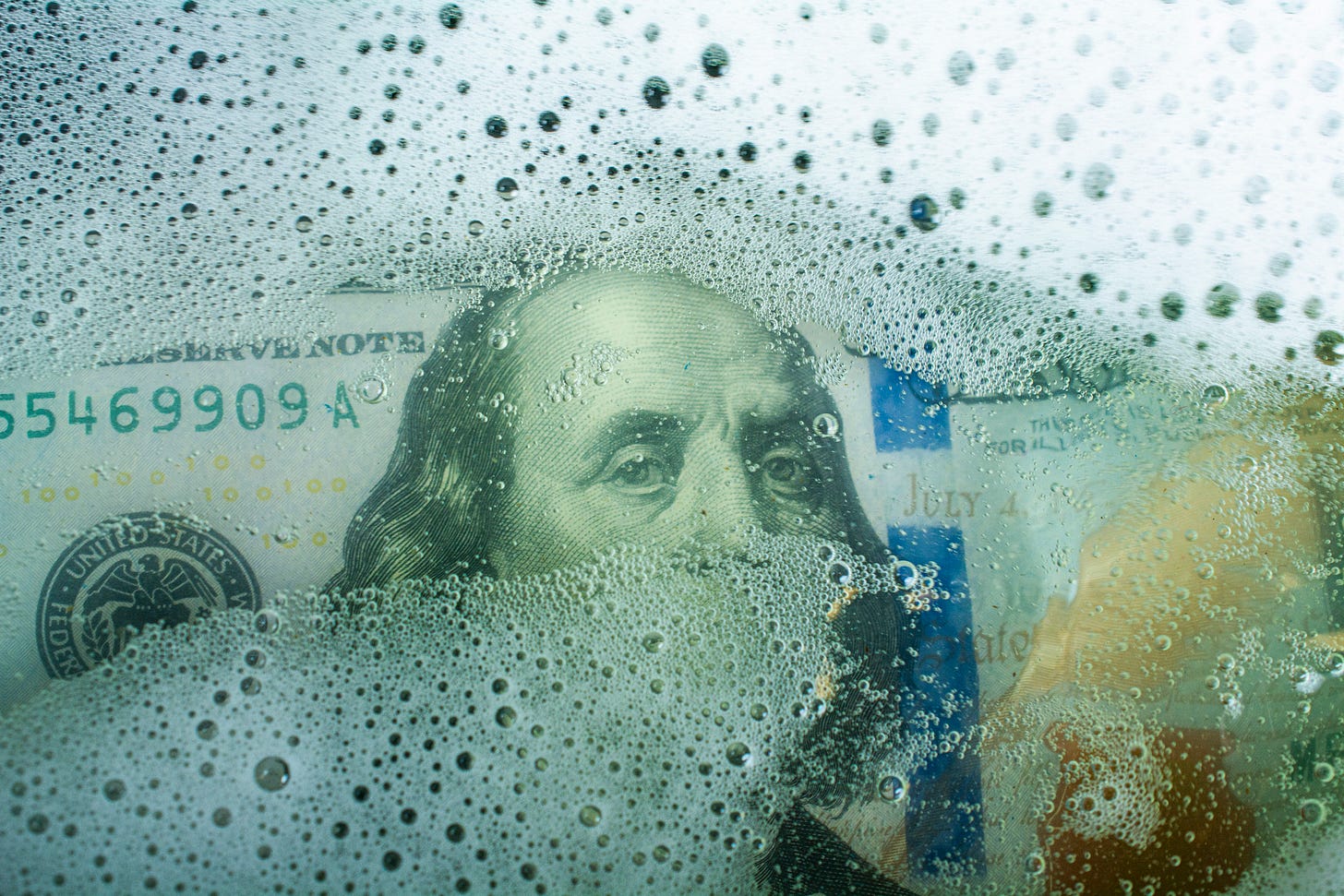Welcome to Yaka Stuff, our weekly newsletter that covers news, industry perspectives, and updates from the Hard Yaka ecosystem. Check out our last report here.
This week:
The best place to hide ill-gotten gains
This week in digital money
The SEC v. crypto
Ecosystem updates
Stuff happens
1. The best place to hide ill-gotten gains
Apparently, it’s the U.S. these days.
Here’s Peter Coy, referencing Janet Yellen (via Greg Kidd):
On Dec. 9, 2021, at the inaugural Summit for Democracy, Treasury Secretary Janet Yellen made a stunning admission: Her country had become the world’s most sought-after shelter for criminals’ money.
“In the popular imagination,” she said, according to the prepared text for the virtual event, “the money-laundering capitals of the world are small countries with histories of loose and secretive financial laws. But there’s a good argument that, right now, the best place to hide and launder ill-gotten gains is actually the United States.”
Coy also spoke with Raymond Baker, who outlined the classic way to launder money:
One thing he learned is that cheating is rampant across the world. A common trick in poor countries is to use fake invoices to evade limits on the export of capital. By overinvoicing its imports and underinvoicing its exports, a company that has the assistance of compliant trading partners can shift funds to secret overseas bank accounts.
Baker told me the people playing that game don’t always see themselves as corrupt. “They think it’s OK,” he said. “It has become so normalized that it’s the way you do business. They say they’re protecting money from loss or making it productive in the world economy.”
It’s not OK, though. It starves poor countries of badly needed money for investment. Baker said all of the tricks that have been developed to shelter money were developed in rich countries, including the United States. He also argued — his opinion, not mine — that the Treasury Department is conflicted because while it opposes corruption, it likes the extra flows of money into the U.S. economy.
2. This week in digital money
Paypal launched a stablecoin:
"The shift toward digital currencies requires a stable instrument that is both digitally native and easily connected to fiat currency like the U.S. dollar," said Dan Schulman, president and CEO, PayPal. "Our commitment to responsible innovation and compliance, and our track record delivering new experiences to our customers, provides the foundation necessary to contribute to the growth of digital payments through PayPal USD."
Elsewhere:
Kenyan Government Suspends Worldcoin Activity on Financial Security, Privacy Concerns
Bank of Russia reveals digital ruble’s logo and commission fees
Digital Dollar Project completes CBDC retail remittance pilot with Western Union
MIT Digital Currency Initiative introduces at-scale, programmable CBDC platform
Binance obtains license to operate as virtual asset exchange in Dubai
‘Let’s just diversify and see’ — Binance CEO on its stablecoin strategy
3. The U.S. v. crypto
Revolut Suspends U.S. Crypto Platform Over Regulatory Uncertainty
POLITICO Pro: ‘Upside down world’: How crypto thrives even after attacks
SEC Told Coinbase to Stop Trading in all Cryptos Except Bitcoin Before Suing
SEC asked Coinbase to halt trading in everything except bitcoin, CEO says
Judge Refuses to Dismiss SEC Lawsuit Against Terraform Labs Despite Ripple Ruling
U.S. SEC Sues Richard Heart, Hex, PulseChain on Unregistered Securities, Fraud Allegations
Binance Could Face U.S. Fraud Charges, but Prosecutors Worry About Risk of Bank Run
U.S. prosecutors worry Binance charges could cause run on exchange
Binance Appoints New Compliance Officer as Regulatory Crackdown Intensifies
Coinbase International clocks in $1.96 billion in trading volumes in July
Coinbase revenue beat estimates, executives expect to win battle with SEC
Bitcoin Lightning on Coinbase agenda, Brian Armstrong tells Jack Dorsey
4. Ecosystem updates
Metaverse Giant Animoca Brands Plunges $30MM Into Crypto 'Super App' hi (via Sam Ostler):
Metaverse gaming company Animoca Brands has invested $30MM in Web3 neobank "hi," founded by Sean Rach, the former CMO of Crypto.com. Before the investment, "hi" had partnered with Mastercard to launch a debit card that allowed users to customize avatars using their own NFTs.
As for Animoca, the company had initially announced the development of the Animoca Capital fund with a goal of $2B in November. However, in January, they scaled down this target by 50% and have just reduced the target by an additional 20%, settling at $800MM.




